Trump declares 'Liberation Day,' announces sweeping global tariffs on 'friend and foe alike'
Published in News & Features
WASHINGTON — President Donald Trump announced sweeping global tariffs Wednesday — a risky move that he vowed would lure manufacturing back to the United States, but which experts warned could upend the global economy.
In a Rose Garden speech, Trump said the U.S. would begin applying a universal baseline tariff of 10% on imported goods from all foreign countries. Several dozen countries that he said unfairly tax American-made goods will face additional tariffs, he said, with China being slapped with another 34% tariff, the European Union a 20% tariff, and India a 26% tariff.
The rates Trump announced increase U.S. import taxes on foreign goods to levels not seen since World War II, and raised the specter of a global trade war.
Trump said the new tariffs represent a turning point globally and for the United States. He said that Wednesday, which he dubbed “Liberation Day,” would “forever be remembered as the day that American industry was reborn, the day America’s destiny was reclaimed, and the day that we began to make America wealthy again.”
The president delivered his remarks just after stock markets closed. But U.S. futures plummeted moments after Trump left the stage, previewing potential turmoil to come as nations impose new tariffs on each other.
“Our country and its taxpayers have been ripped off for more than 50 years, but it is not going to happen anymore. It’s not gonna happen,” Trump said. “This is one of the most important days, in my opinion, in American history. It’s our declaration of economic independence.”
He accused nations the world over — “friend and foe alike” — of having “looted, pillaged, raped and plundered” the United States.
Trump repeatedly referenced “reciprocal tariffs,” but some tariffs are not entirely reciprocal. The White House said, for example, that if a country imposes a 50% tariff on the U.S., it was being hit with a 25% tariff. But the numbers provided by the White House could not be immediately verified.
The new tariffs are in addition to a 25% tariff on all foreign-made automobiles that Trump announced last week, and that was scheduled to take effect Thursday morning.
The exact nature of the tariffs was kept a mystery until the last moment, with Trump meeting with economic advisers as late as Tuesday afternoon to finalize details, White House Press Secretary Karoline Leavitt said.
Trump has been advocating for tariffs since the campaign trail, trumpeting the idea that foreign countries have been “ripping off” the U.S. for decades.
But a majority of American adults — 58% — agree that tariffs will hurt the national economy, according to a Marquette Law School poll released Wednesday. Democrats are more convinced than Republicans — 89% of Democrats and 58% of independents said tariffs will hurt the economy, compared to 52% of Republicans who think tariffs will help.
In a meandering speech that touched on Ukraine and Russia, his gripes with the media and the Middle East, Trump also repeatedly blamed his previous opponent, former President Joe Biden, for not protecting the United States economically.
“I blame former presidents and past leaders for not doing their job,” Trump said. “They let it happen.”
Saying the tariffs would usher in a “Golden Age of America,” Trump emphasized the tariffs would elicit stronger competition and lower prices for consumers. The president spoke in the Rose Garden, a frequent site for important presidential economic announcements, to an assembled crowd including several United Auto Workers union members in hard hats.
Sean Fain, president of the union, said Sunday on CBS News that “tariffs are a tool in the toolbox” to encourage more companies back to the United States. Fain and his union had endorsed Biden in last year’s election, after the Democrat made history by standing with striking autoworkers.
Trump threw a MAGA hat to the autoworkers in the crowd and, gesturing toward them, said they would benefit from manufacturing “roaring back into our country.”
“They’re not voting Democrat anymore,” Trump said, as the crowd cheered.
And yet, while several prominent Republicans attended the speech, others on Capitol Hill kept their distance, warning the president of dire consequences for the farmers and manufacturers in their districts who could be swiftly put out of work over the new policy.
“Anyone who says there may be a little bit of pain before we get things right needs to talk to my farmers who are one crop away from bankruptcy,” Republican Sen. Thom Tillis of North Carolina told reporters Tuesday. “So we’ve got to be crisp on this implementation. Otherwise, we could do damage that is irreparable to farmers.”
In a major victory for Canada and Mexico, it appeared on Wednesday that both countries had escaped the country-specific tariffs announced by Trump, although both nations will be subject to other types of tariffs from previous actions.
Trump began his presidency with a burst of taxes against foreign imports from Canada and Mexico, alleging that those countries were responsible for a fentanyl crisis in the United States. The president then paused and reinstated the tariffs, but White House officials said Wednesday that while Canada was exempt from today’s announcement, 25% tariffs on certain Canadian goods and 10% on others were going to continue.
“He wants to break us so that America can own us,” said Canadian Prime Minister Mark Carney in a video Wednesday. “That will never happen. And our response to these latest tariffs is to fight, is to protect and to build.”
Leaders around the world had been on edge for weeks ahead of Trump’s announcement. The anxiety has been particularly acute in Mexico, which does more trade with the United States than any other nation.
Last year Mexico exported more than $500 billion in merchandise — including vehicles, computers, oil and gas — to its northern neighbor. At the same time, it imported $334 billion in U.S.-made goods.
Mexican businesses have since held back from new investments.
Mexican President Claudia Sheinbaum has taken a cautious approach, seeking to mollify Trump. Unlike Canada, she did not slap tariffs on U.S. imports when Trump briefly imposed tariffs on Mexican goods.
On Wednesday, before Trump’s announcement, Sheinbaum said Mexico would respond on Thursday with “a comprehensive program” to counter the new tariffs but suggested that Mexico would not respond with tariffs of its own. “It’s not a matter of ‘if you impose tariffs on me, I impose tariffs on you,’” she said.
Domestically, Democrats have persistently blasted Trump’s tariffs agenda as harmful to Americans, who are likely to face higher prices on everyday imported goods. Rep. Robert Garcia, D-Calif., called the tariffs “horrific for the economy,” especially for his district, which relies on commerce consistently coming through the Port of Long Beach and Los Angeles. Garcia said that in conversations with port executives, shipping companies and retailers, “Not a single person thinks it’s a good idea.”
“This will be passed on to everyday Americans, and it’s going to be really disruptive, especially for cities like Los Angeles and Long Beach,” Garcia said.
_____
(Los Angeles Times staff writers Pinho and Wilner reported from Washington and Linthicum from Mexico City.)
©2025 Los Angeles Times. Visit at latimes.com. Distributed by Tribune Content Agency, LLC.
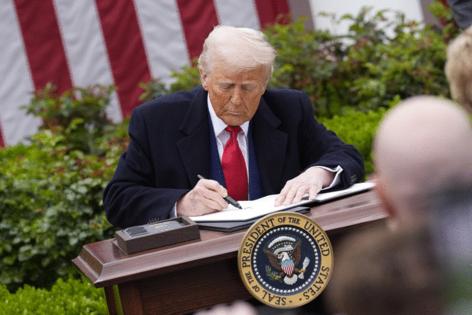
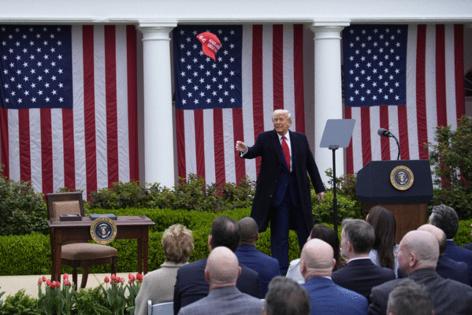
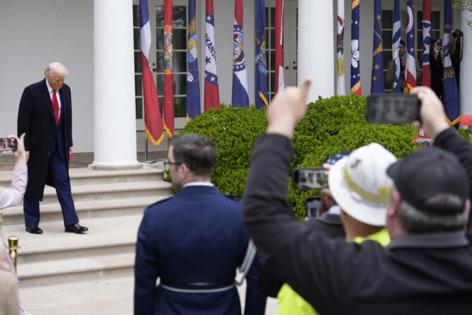
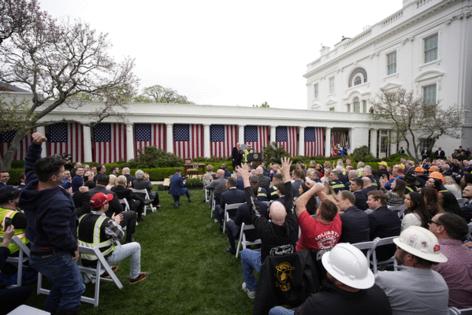
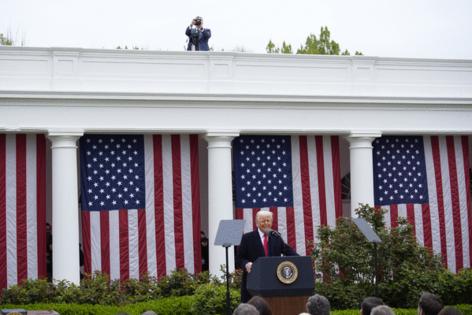











Comments